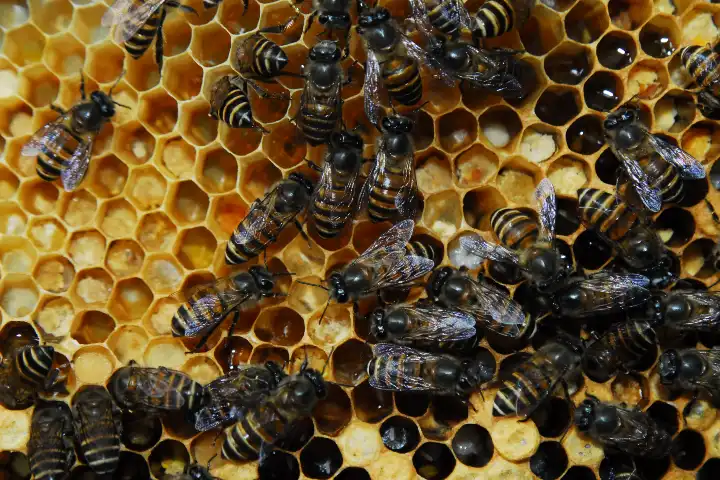

The new species of honey bees discovered in India after 1798
The discovery of an endemic honey bee in Western Ghats biodiversity hotspot spells well for both the scientific community and livelihood of people in India. Interestingly, the new species has been found after more than 200 years as it was in 1798 the last honey bee had been discovered in the country.
Named Apis karinjodian, the common name of the new species is Indian black honey bee and its appearance is visibly dark.
Details of this find have been published in the September issue of the journal Entomon, a peer-reviewed journal brought out by Association for Advancement of Entomology.
The new species spells well for apiculture in India, pointed out Dr. Shanas S, Assistant Professor in Kerala Agricultural University’s Integrated Farming System Research Station in Thiruvanathapuram, to India Narrative. “The ability of the Indian black honey bee to produce higher quantities of honey which is thicker in consistency opens up new avenues for increasing the honey production.”
The honey which currently comes from A. indica has high moisture content – more than 25% — while the Food Safety and Standards Authority of India does not allow more than 20%. This forces farmers to heat the honey leading to change in colour and texture while also causing loss of nutrients. But the thicker consistency honey of the new species doesn’t require this process and thus retains its natural goodness, Shanas said.
The bee was discovered by a team which included Shanas, S.N. College, Cherthala’s Anju Krishnan G and Dr. Mashhoor K from EMEA College of Arts and Science, Malappuram.
Sharing details about A. karinjodian, Shanas, told India Narrative that it has evolved from A. cerana morphotypes which got used to Western Ghats hot and humid environments. He went on to add that the origin of the species could have been facilitated by low temperature and abundant floral resources of the humid and moderate environments in the ghats.
A. karinjodian habitat is spread from the central Western Ghats and Nilgiris to the southern Western Ghats, covering the States of Goa, Karnataka, Kerala and parts of Tamil Nadu. The species has been classified as near threatened in Kerala going as per International Union for Conservation of Nature Red List categories and criteria as it is found rarely in managed and feral colonies in Western Ghats region of Kerala.
The last honey bee found in India in 1798 by Fabricius was Apis indica. It was not considered as a valid species till this research team restored its status based on a new measure for species discrimination in honey bees termed Radio-Medial Index.
With the new discovery and acceptance of 1798 species as valid, the number of species of honey bees in the world has become 11.
The study has also provided the first distribution map and key to distinguish the three cavity nesting honey bee species occurring in the Indian subcontinent, namely A. indica, Apis cerana and A. karinjodian. Honey bees used for commercial honey production are known as cavity nesting honey bees.
NATO's recent decision to ramp up military spending will not significantly impact Russia's security, Foreign…
India has imposed anti-dumping duties on imports of Plastic Processing Machines from China and Taiwan,…
The Human Rights Desk of the Department of Information and International Relations for the Central…
India's trade delegation is currently in the United States for high-stakes negotiations aimed at finalising…
Defence Minister Rajnath Singh held a meeting with his Russian counterpart Andrey Belousov on the…
Hailing the all-party delegation which travelled to 33 different countries as part of India's global…